Search Results
Showing results 1 to 19 of 19
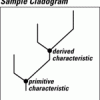
The Missing Link
Source Institutions
In this activity, learners collect, analyze, and interpret information about objects in order to classify them into a cladogram. Use this activity to talk about how scientists classify things.
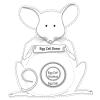
Let's Clone a Mouse, Mouse, Mouse...
Source Institutions
Somatic Cell Nuclear Transfer (SCNT) is a cloning method that involves transferring a nucleus from a somatic cell of the individual to be cloned to an enucleated egg.

Toxic Popcorn Design Challenge
Source Institutions
In this activity, learners explore the engineering design process (EDP)—the process engineers use to solve design challenges.
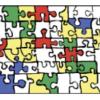
Finding a Gene on the Chromosome Map
Source Institutions
In this activity, learners use pedigree and jigsaw puzzles to explore how scientists use genetic information from a family to identify a gene associated with a genetic disorder.
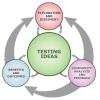
Poking Around: Having Students Experience the Real Process of Science
Source Institutions
Using indirect methods, learners determine the shape and size of a piece of carpet hidden under a piece of plywood.

Tinkering with Tops
Source Institutions
In this activity, learners explore the history, design and motion of spinning tops. Learners work in teams of "engineers" to design and build their own tops out of everyday items.
Mission Insignia
Source Institutions
In this science/art activity, learners create an insignia or emblem for a planet exploration mission.
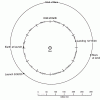
Getting There!: Navigation and Trajectory
Source Institutions
In this two-part activity, learners map a navigation plan to get from Earth to Mars and back. In activity one, learners represent the orbital paths of Earth through dance and dramatic movement.

Tennis Anyone?
Source Institutions
In this activity, learners explore sports engineering and advanced materials development.

Pipeline Challenge
Source Institutions
In this activity, learners explore how engineers develop pipeline systems to transport oil, water, gas, and other materials over very long distances.

Oil Spill Solutions
Source Institutions
In this activity, learners explore how environmental engineers might approach solving the problem of an oil spill.
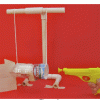
The Ballistic Pendulum
Source Institutions
In this physics crime lab or demonstration, learners pretend they are criminologists and must find the "muzzle velocity" (speed of the bullet as it leaves the gun) of a gun used to commit a crime.
What Does Life Need to Live?
Source Institutions
In this astrobiology activity (on page 11 of the PDF), learners consider what organisms need in order to live (water, nutrients, and energy).
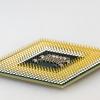
Crime Scene: The Case of the Missing Computer Chip
Source Institutions
Learners use scientific processes to solve a crime. As they get clues, learners must create a hypothesis then adjust that hypothesis as more information is revealed.

Be A Pasta Food Scientist
Source Institutions
In this activity, learners of all ages can become food scientists by experimenting with flour and water to make basic pasta.
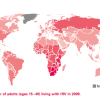
Mapping the Spread of HIV/AIDS: Trailing the Pandemic
Source Institutions
In this activity, learners act as epidemiologists by mapping the prevalence of HIV/AIDS worldwide.
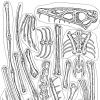
The Great Fossil Find
Source Institutions
On an imaginary fossil hunt, learners "find" (remove from envelope) paper "fossils" of some unknown creature, only a few at a time.
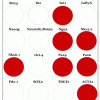
Microarrays and Stem Cells
Source Institutions
In this activity, learners use microarray technology to determine which genes are turned on and off at various points in the differentiation of pluripotent stem cells on their way to becoming pancreat
MarsBound!: Mission to the Red Planet
Source Institutions
MarsBound! is an engineering simulation activity in which learners use realistic techniques to plan a mission to Mars.
